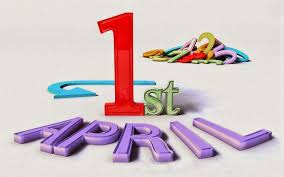The History of April Fools

By: Megan Grossi
Good news! After a lot of soul searching at Mar-a-Lago, Donald Trump has decided that he is not cut out to be the president of the United States. He plans on stepping down after his 100 days are up. And I know what you’re thinking: “That just means Pence is going to take over!” Well fear not, because Mike and Donny talked it out and agreed that neither they nor the administration is what Progressive-America needs right not. He humbly asked Bernie Sanders to step back into the lime light one more time…
Just kidding, April Fools! Unfunny joke aside, April Fools’ Day comes and goes so quickly every year, like any ordinary day. And yet, it gets hyped up as much as the 4th of July or . Presidents’ Day. April Fools’ is really just a day of pranks, but where did it come from and why do we love it so much?
The exact origins are unclear, but historians have multiple theories. Back in 1582, the Julian calendar was replaced with the Gregorian calendar, people who didn’t get the memo were mocked mercilessly. The year now began on January 1st, like it does now, and people who continued to celebrate through the last week of March into April 1st were considered fools. Secondly, in ancient Rome people were known to celebrate a holiday called Hilaria, wherein people would wear disguises and have fun. Think of it as a Roman version of Halloween, but with more fun, warmer weather, and less of a scare factor.
No matter how you turn it, April 1st has always been associated with pranks and fools, and what’s wrong with that? Everybody needs a break from the seriousness of the everyday.. It makes sense that a day dedicated to having fun would be so popular for so long. Day by day pressure and social constructs keep people in place and stress everybody out, so even if you don’t celebrate April Fools’ Day it’s still uplifting to know that you have at least one “get out of work free” card to cash in.


